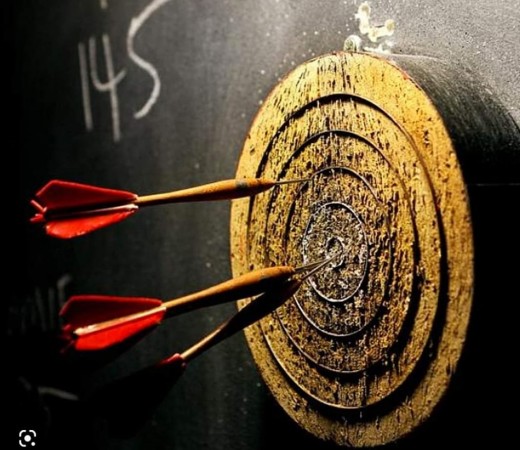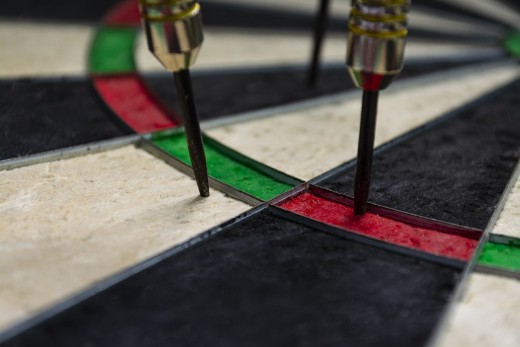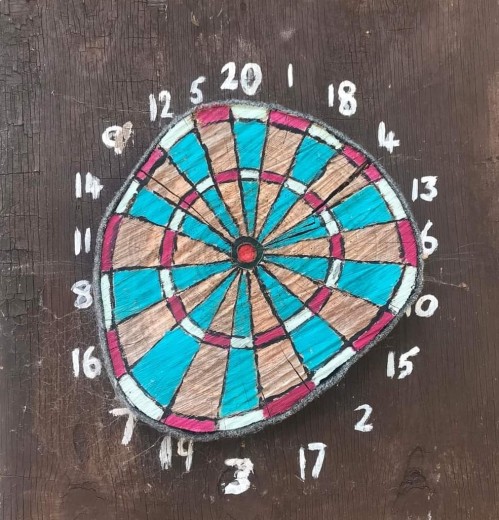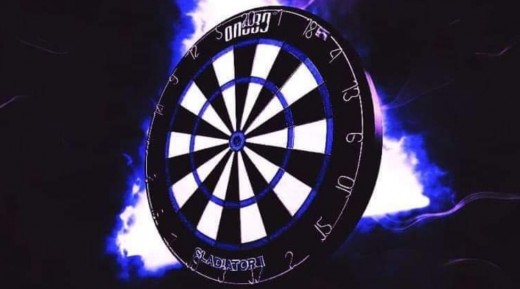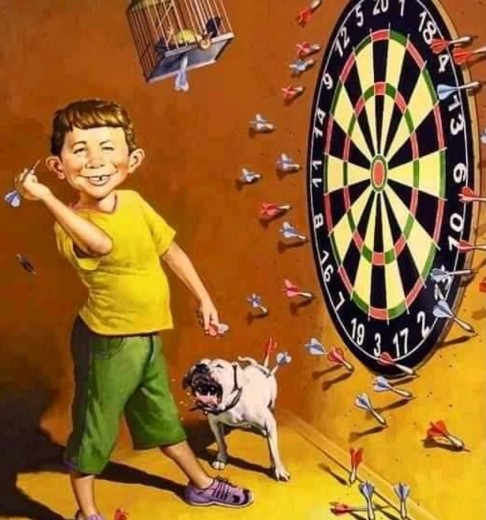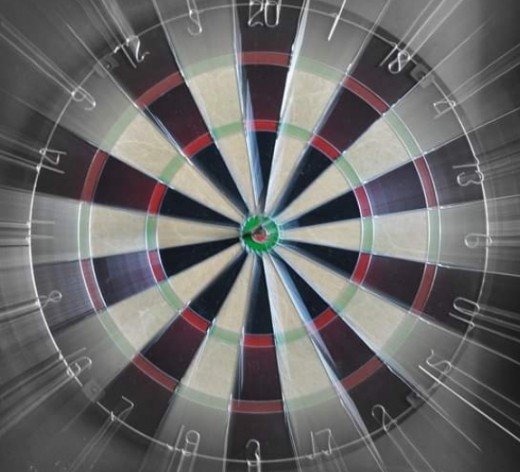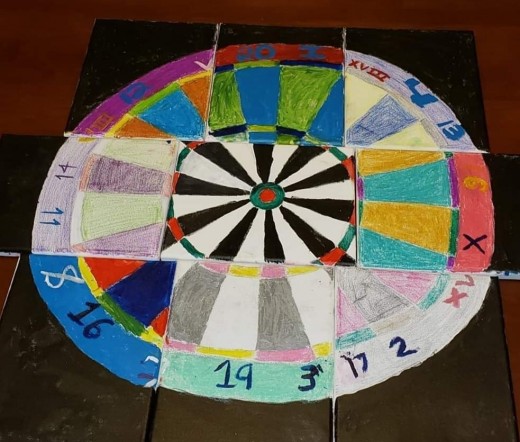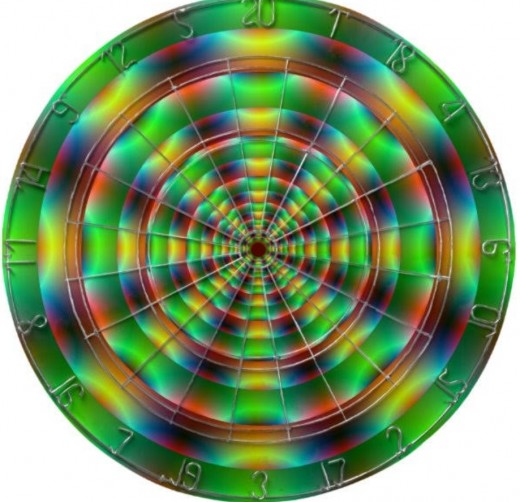Monday, August 6, 2018
Column CM43
World Matchplay – dancing along…
As we all know, the World Matchplay takes place in the Empress Ballroom of the Winter Gardens in Blackpool – though except for a few darts players no one during the event really dances here. But in fact, for much longer than the World Matchplay – since 1920 when it first took place – the ballroom has been the site of an annual dancing festival. It’s not quite clear whose idea it was to install the festival here; most likely it was two people who planned it together – the then director of the Winter Gardens, Harry Wood, and music publisher Nelson Sharpes who published all the sheets of dances performed in the Ballroom from his publishing house in Blackpool. At this time only Waltzes, Lancers, Two Stepps and so called Novelity Dances were danced.
When the festival started modern Ballroom dances and Latin America dances were not yet developed and so the first festival in 1920 offered only three competitions – Waltzes, Two Stepps and Foxtrotts. The festival was held over four days and on the fourth day one of the dances was declared the winner and its developer was decorated. Over the years more dances were added and not only the dances could win prizes but the dancers as well. Competitions for professionals and amateurs were offered. A special valuation system was developed which is used still today all around the world. During World War II the festival paused but started again in 1946 and it got more and more popular as the number of competitions increased and more and more dancers from all over the world took part. In 1961, for the first time a competition in Latin-American dances took place. Particularly popular today is the Professional Invitation Team Match to which always teams from four different countries are invited. In 2017 2790 dancers from 60 countries took part in the festival. Also now, besides the festival which is open to all dancers a competition for only dancers from the UK takes place.
Not as elegant as the dancers are the darts players and they don’t glide over the historical parquet of the Empress Ballroom but move around only on stage. Of course, there are elegant and not so elegant player-dancers; for many of them rhythm (or lack of rhythm!) plays a big part in their performance.
On the third day of the World Matchplay the first round was played to the end and I was looking forward to seeing how the last two debutants would fare. But first Kim Huybrechts and John Henderson came on stage. At the start it looked as if it would develop into a rather one-sided match dominated, surprisingly, by Huybrechts who had not been successful recently and rarely had a reason to celebrate here in Blackpool before. But John Henderson doesn’t look like he gets easily worked up and he is not a player to give in – and he fought back into the match. So, a one-sided match turned into a close affair. Huybrechts had the advantage that he won the throw for the bull but nevertheless he fell behind. He returned and forced a tiebreak. Kim won his legs and Henderson always responded winning his legs, so we had a 12-12 tie; a Sudden Death leg would decide the outcome of the match, the first ever Sudden Death leg in the World Matchplay’s history. Again, Huybrechts had the advantage to start the leg but Henderson got into the leg better and had the first match dart. But he missed and Huybrechts had a chance which he used to win the match. It was a great match and to be sure no other player shows his delight as nice as Huybrechts does!
Really one sided was the following match between Simon Whitlock and his friend and debutant Richard North, who couldn’t hit much and showed his frustration in quite an expressive manner. When it was 8-0 Whitlock, North finally managed to win a leg. And as he enjoyed that so much he threw three 140s in the following leg and won it too when Whitlock missed his double. So, at least it was not a whitewash for the young player. But after he won the two legs he returned to his scores of around 40 points and Whitlock easily advanced 10-2. Richard North to be sure will not look back with pride at his first World Matchplay appearance.
The third match was as close as the first one but from neither player was the quality as good. James Wade played against the last of the debutants, Jermaine Wattimena. Wade needed a few legs to get into the match so Wattimena had a lead at first, but Wade managed to draw even and after that neither of the players managed to pull clear, though Wade was all in all a little bit better than Wattimena. Wade missed with his first match dart and Wattimena tied it up at 9-9 and the match went into the tiebreak. In the end Wade won 12-10 but should he hope to progress further in the tournament he will need to improve.
The last match was one-sided again. Peter Wright played against Jelle Klaasen who played poorly while Wright played on the same level as Wade and Wattimena. When Wright was 8-2 in the lead Klaasen started a comeback and won a few more legs. Wright won his ninth leg with a 170-finish, the second of the tournament after Joe Cullen’s 170. The finish was the highlight of the match and ended Klaasen’s hopes. It was a 10-5 win for Wright but as for Wade he must improve should he want to get far in the event.
So, the first round ended. From among the debutants only the one with the most difficult draw had survived – Jeffrey de Zwaan. The others just didn’t bring convincing performances and the two of the last evening just played way below their best.
From the unseeded players beside de Zwaan only Joe Cullen remains in the tournament.
Outstanding performances we didn’t see and, so far, there have been no averages over 100. From the favorites still in the tournament Anderson and Cross showed the best effort but until now none of the players has strongly established himself as the likely winner.

